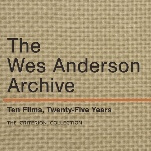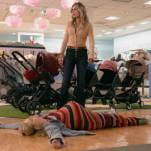Easy Rider ushered in a new generation of filmmakers not born to follow

As is often the case with pop touchstones, the experience of watching Easy Rider from start to finish is very different from receiving the movie—as so many have—in pieces. In clip-packages meant to encapsulate what “the ’60s” were all about, Easy Rider is a distilled expression of counterculture cool, with a long-haired Peter Fonda and Dennis Hopper roaring through middle America on souped-up choppers, while Steppenwolf blares on the soundtrack. According to the legend, the film represents a victory for the hippies over the establishment squares still controlling the media in 1969. Its massive box office success sent studios scrambling to find any pot-smoking freak who could tap into the lucrative youth market—which quickly led to American cinema having its own belated “New Wave” in the early ’70s, over a decade after the French broke that ground. Easy Rider also boosted charismatic bit-player Jack Nicholson, who steals the picture during his roughly 20 minutes of screen time and then capitalized on his elevated profile to become one of the biggest movie stars in the world.
The Criterion Collection has released Easy Rider on DVD and Blu-ray before, as part of the essential America Lost And Found: The BBS Story box set. But there, the film was part of a larger narrative, sowing seeds for a movement that would blossom more fully in the unparalleled BBS masterpieces Five Easy Pieces and The Last Picture Show. The new stand-alone Criterion DVD and Blu-ray editions of Easy Rider don’t add any bonus features that weren’t already present in the box. It includes a 1995 Hopper/Fonda commentary track (with production designer Paul Lewis joining in), and a separate 2009 Hopper commentary, plus two fairly similar behind-the-scenes documentaries and a couple of stray interviews. But just the act of separating Easy Rider from the pack allows for a little more thoughtful consideration of the piece itself: as cinema, and not just as a landmark.







































